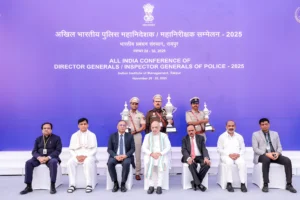
On Saturday, Delhi Chief Minister Arvind Kejriwal appeared before a city court as his three-day remand period expired in connection with a corruption case related to the liquor policy.
Earlier this week, the Central Bureau of Investigation (CBI) brought CM Kejriwal before the court after granting him custody for interrogation.
On 26 June, the Rouse Avenue Court placed CM Kejriwal under CBI custody for three days in response to the agency’s request for further interrogation.
During the proceedings, the CBI formally arrested the Aam Aadmi Party leader when he appeared before vacation judge Amitabh Rawat.
Meanwhile, in a parallel legal development, Kejriwal withdrew his plea from the Supreme Court challenging a Delhi High Court interim stay on his bail in a separate money laundering case linked to the liquor policy scam.
Senior advocate Abhishek Manu Singhvi, representing CM Kejriwal, informed Justices Manoj Misra and S V N Bhatti of the vacation bench that they would file a fresh plea in the Supreme Court, in light of the Delhi High Court’s recent decision to stay the trial court’s bail order.
The Delhi High Court, in its final ruling on a petition filed by the Enforcement Directorate (ED), criticized the trial court’s vacation bench for allegedly not adequately considering all evidence and denying equal opportunity for the ED to argue against bail.
The case continues to draw significant attention as legal proceedings unfold against Delhi’s Chief Minister amid allegations of corruption involving the state’s liquor policy.
Also Read: Crackdown On Illegal Activities In Gurugram’s Aravali Range Intensifies
To read more such news, download Bharat Express news apps


















